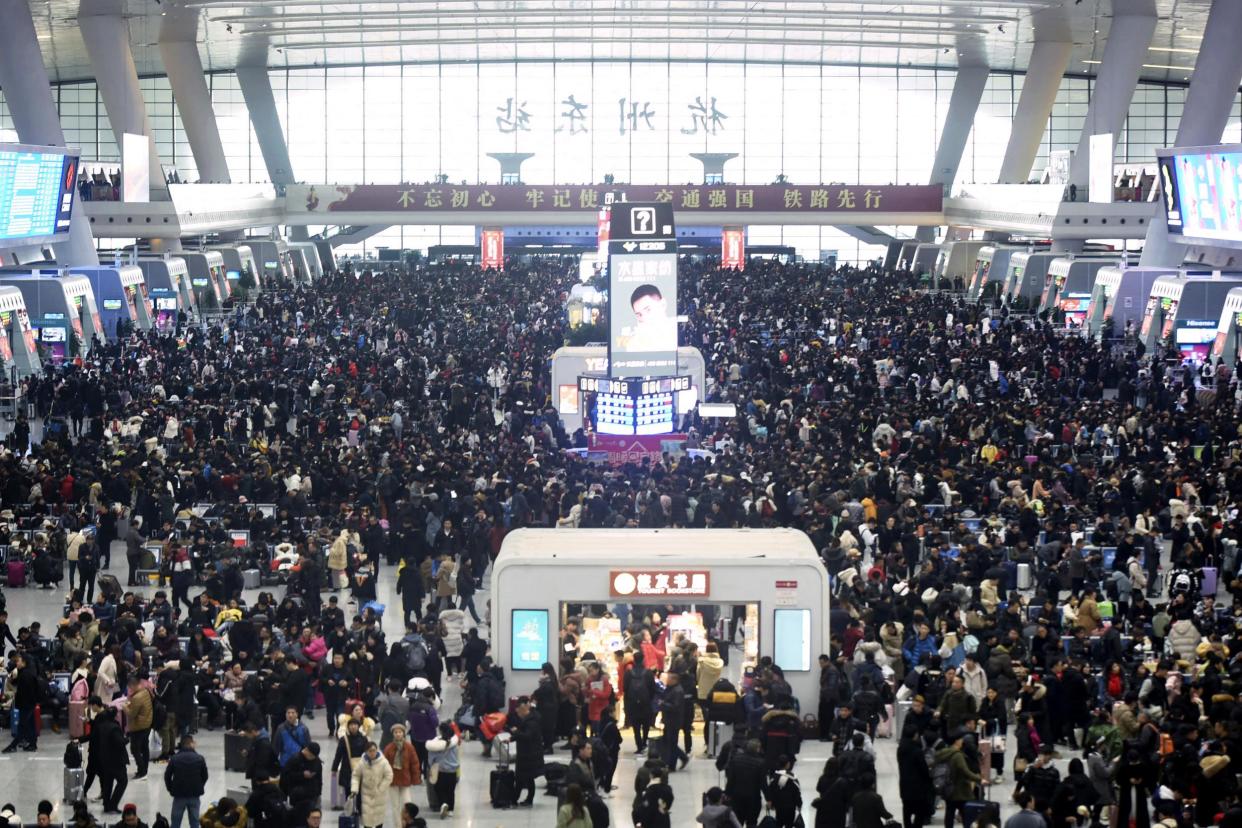World's biggest mass migration begins as China prepares to mark New Year

Chinese travellers are inundating train stations and airports on Friday 17 January to take part in the world’s biggest annual human migration.
This nationwide ritual happens every year ahead of the Lunar New Year as part of the Spring Festival: around 3 billion trips will be made during the rush, according to China’s transport ministry.
China is celebrating the Lunar New Year Spring Festival, also known as Chinese New Year, for 40 days running from 10 January to 18 February, with Lunar New Year’s Day itself falling on 25 January 2020.
The mass migration stems from citizens travelling home, both within China and from all over the world, to spend time with family during the festival.
For migrant workers who live abroad, Lunar New Year is often the only time during the year when they are able to spend time with their families.
The travel rush over the break is known as “Chunyun”; in 2019, an estimated 2.9 billion trips were taken, a 0.8 per cent rise on 2018. This year’s estimated number of trips represents a potential 3 per cent rise year-on-year.
Festivities often focus around food and feasting, culminating in the traditional Nian Ye Fan reunion dinner, which takes place on the eve of Spring Festival. It usually includes poultry, pork and fish dishes, spring rolls, noodles and vegetable taro cakes. Jiaozi dumplings are also customary in the north while niangao, a glutinous rice cake, is traditional in the south.
Each year is assigned a spirit animal from the Chinese zodiac: 2020 marks the Year of the Rat, the first of the repeating 12-year cycle of animals.
China’s transport infrastructure has had a recent boost, which will help some of those returning home.
A new driverless train capable of travelling at 350kph opened in January 2020.
The high-speed bullet train connects Beijing with Zhangjiakou, two of the main host cities of the 2022 Winter Olympics.
It has slashed the journey time from three hours to just 47 minutes.
The Jing-Zhang high-speed railway also stops at Yanqing, another host city, along with seven other stations, including Badaling Chang Cheng, home to one of the Great Wall of China’s most popular sections.
Although the trains can ride the rails completely autonomously, stopping, starting and adjusting their speed, a human driver will be onboard every service.

 Yahoo News
Yahoo News 
